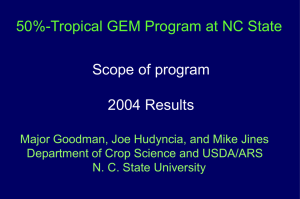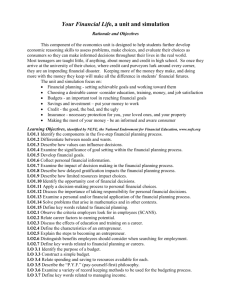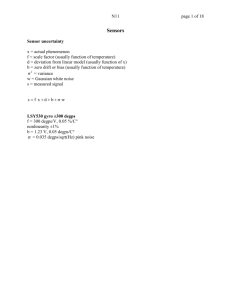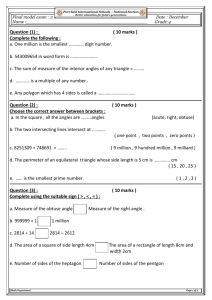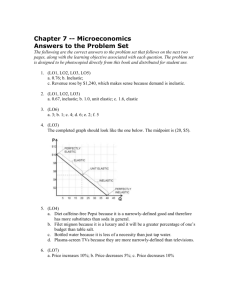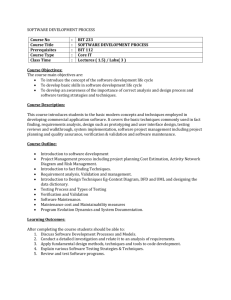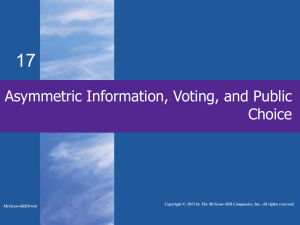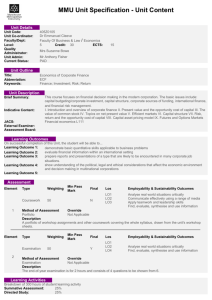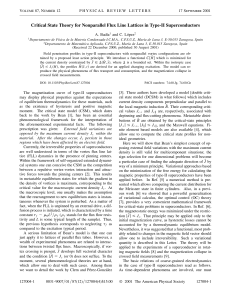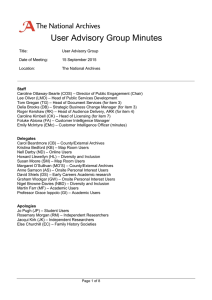GEM_Goodman_07_ASTA
advertisement
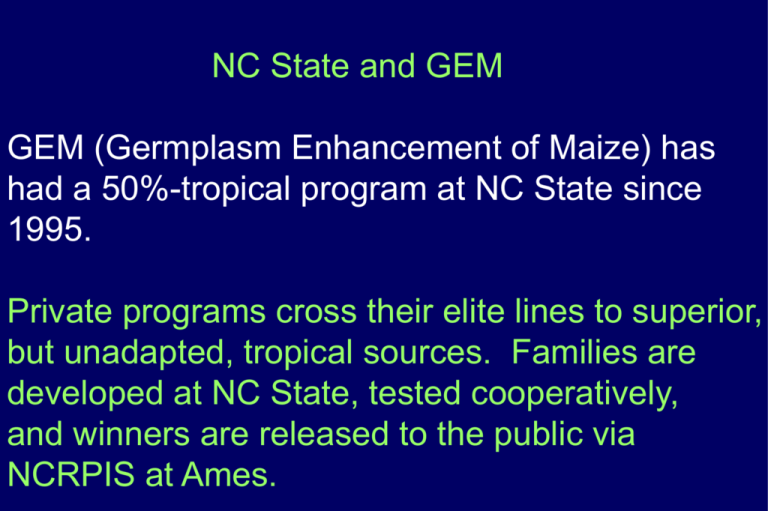
NC State and GEM GEM (Germplasm Enhancement of Maize) has had a 50%-tropical program at NC State since 1995. Private programs cross their elite lines to superior, but unadapted, tropical sources. Families are developed at NC State, tested cooperatively, and winners are released to the public via NCRPIS at Ames. 16,300 yield and disease plots were coordinated through Raleigh in 2007. 8,300 were planted at 5 NC State yield trial locations. 400+ plots were grown for GLS disease ratings at two NC State locations and one Pioneer location (Andrews, NC). Over 300 nursery rows were devoted to Allelic Diversity, involving accessions outside the core breeding materials utilized by GEM and most plant breeding organizations. These represent new F1 hybrids from about 75 accessions, thanks to Jim Deutsch of Syngenta and Randy Holley of Pioneer. PHB47 and PHZ51 were used as ex-PVP parents. Backcrosses to the ex-PVP lines were made this summer. About 100 new accessions were sent to Deutsch and Holley this fall to make new F1s. The cooperators who make this work possible include: Hoegemeyer (Nebraska) Mycogen (Indiana) Monsanto - (Georgia, South Carolina) PANNAR (Indiana) Pioneer - (Georgia, Indiana, NC, Tenn., W.N.) Syngenta (Missouri, Texas, W.N.) Tifton, Georgia - USDA-ARS University of Delaware University of Tennessee. Without them, there would be no program. ENTRY DERIVATION Tester 2410-003/99 7258-03-10-03-B T1 751-016/02 7451-27-75-16-B YLD 751-027/02 7451-27-75-27-B H2O % EP Source 172.8 18.5 89.4 SCR Gp3 N14 174.0 20.7 92.8 DK888 N11 T8 173.6 20.3 89.1 DK888 N11 T8 791-009/02 7451-27-778-09-B 175.8 19.1 92.5 DK888 N11 T8 Check mean 93.6 176.5 18.3 CV 6.5 10.4 751-027/02 7451-27-75-27-B 183.3 19.4 94.2 DK888 N11 T2 751-037/02 7451-27-75-37-B 178.2 18.5 95.9 DK888 N11 T2 Check mean 177.9 17.5 90.0 T1 CV = LH132.LH195; 12.8 22 Env. T2 = LH244.LH245; = FR992.FR1064 12.0 6.9 T8 18.2 8 Env. ENTRY 2410-003/99 N14 751-016/02 751-027/02 YLD 172.8 H2O 18.5 % EP Source 89.4 SCRGp3 174.0 173.6 20.7 20.3 92.8 DK888 N11 89.1 DK888 N11 791-009/02 Check mean CV 751-027/02 751-037/02 Check mean 175.8 176.5 12.8 183.3 178.2 177.9 19.1 18.3 6.5 19.4 18.5 17.5 92.5 DK888 N11 93.6 10.4 22 Env. 94.2 DK888 N11 95.9 DK888 N11 90.0 We have been testing all-tropical lines from several sources. Trials conducted over multiple years and locations in NC suggest that CML lines 108, 157Q, 274, 341, 343, and 373; 89291 from IITA; and NC296, 296A, and 346 perform well. CML343 appears to have the most promise. Entry t/ha SE Env. CML108 x LH132.LH51 7.2 0.35 18† CML157Q x LH132.LH51 7.2 0.35 18 CML274 x LH132.LH51 7.3 0.36 14 CML341 x LH132.LH51 7.3 0.35 18 CML343 x LH132.LH51 7.7 0.37 10 CML373 x LH132.LH51 7.2 0.37 10 NC296A x LH132.LH51 7.4 0.38 08 89291 x LH132.LH51 7.7 0.43 04 LH132 x LH51 6.7 0.36 14 Mean of Checks 7.6 † Number of environments represented by the data. The most important events in the program at Raleigh involve new research personnel. Matt Krakowsky has joined us from Tifton, GA; he will be leading the GEM efforts in Raleigh. In addition, Matt has been able to hire a highly competent M.S. plant pathologist, Dale Dowden. Dale has had 30 years experience working with corn in the Southeast, mostly with DeKalb in North Carolina and Georgia. I will continue to work with Matt for the next several years, but Matt will be in charge of GEM yield trials, allelic diversity, screening of new tropical lines, choices of breeding crosses, and choices of testers, among other things (like budgets!). Matt will be asking some of you to make new breeding crosses with lines like CML343. Please help him. Matt may also be asking for new testers. We are in the process of switching from FR615.FR697 to LH283.LH287 as a standard NSS tester. We have tried to switch our main SS tester from FR992.FR1064 to either LH132.FR1064 or LH244.LH245; there is still room for improvement. We have tried 4 new testers from Pioneer: SS1.SS2 SS3.SS4 NSS1.NSS2 NSS3.NSS4 Of these, SS1.SS2 and NSS3.NSS4 appear best. We need to test PHSS1.SS2 and LH132.FR1064 more thoroughly in next winter’s Florida nursery. Both FR992.FR1064 and LH244.LH245 have adaptation problems in Florida. Any new SS alternatives also will need testing there.
